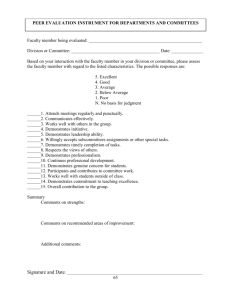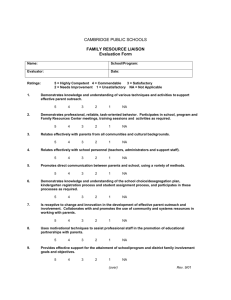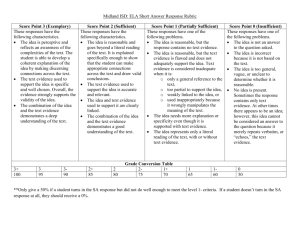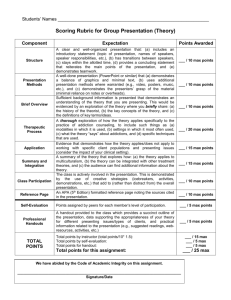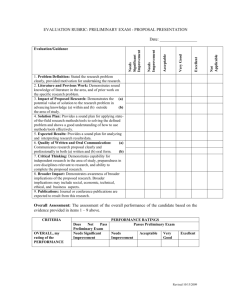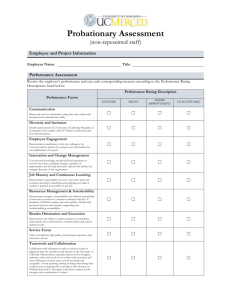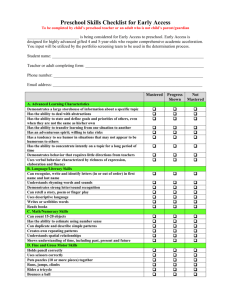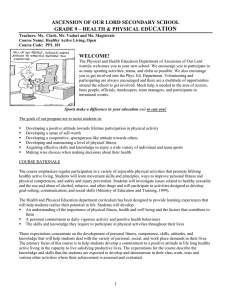Rubric Explanation for the TESAS Evaluation
advertisement
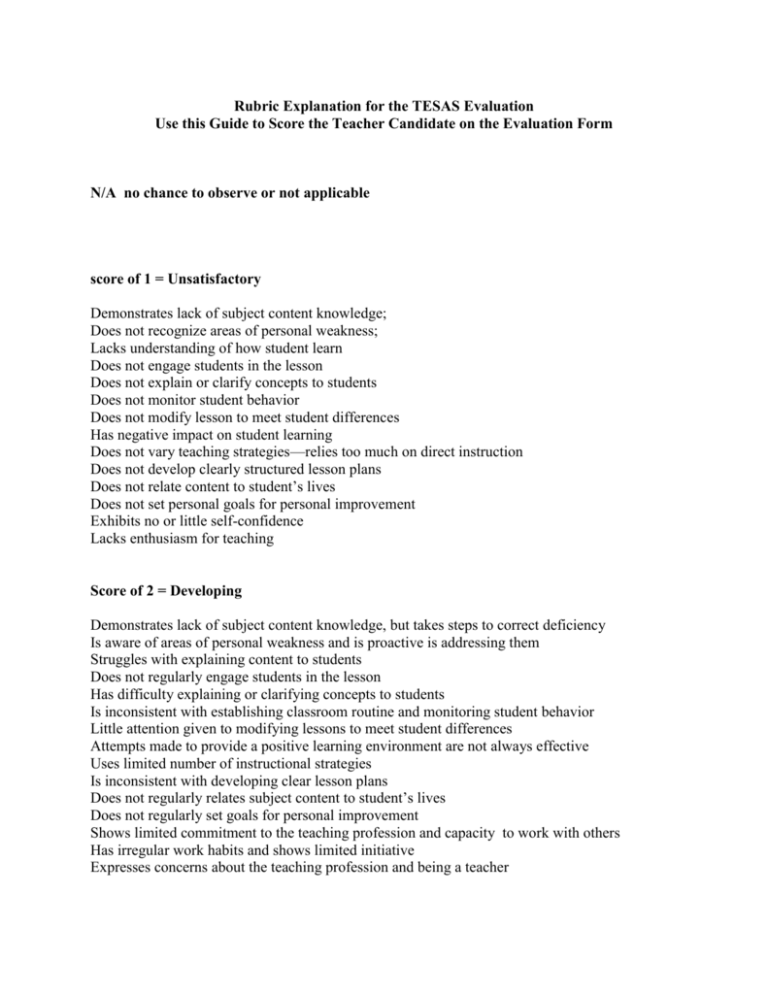
Rubric Explanation for the TESAS Evaluation Use this Guide to Score the Teacher Candidate on the Evaluation Form N/A no chance to observe or not applicable score of 1 = Unsatisfactory Demonstrates lack of subject content knowledge; Does not recognize areas of personal weakness; Lacks understanding of how student learn Does not engage students in the lesson Does not explain or clarify concepts to students Does not monitor student behavior Does not modify lesson to meet student differences Has negative impact on student learning Does not vary teaching strategies—relies too much on direct instruction Does not develop clearly structured lesson plans Does not relate content to student’s lives Does not set personal goals for personal improvement Exhibits no or little self-confidence Lacks enthusiasm for teaching Score of 2 = Developing Demonstrates lack of subject content knowledge, but takes steps to correct deficiency Is aware of areas of personal weakness and is proactive is addressing them Struggles with explaining content to students Does not regularly engage students in the lesson Has difficulty explaining or clarifying concepts to students Is inconsistent with establishing classroom routine and monitoring student behavior Little attention given to modifying lessons to meet student differences Attempts made to provide a positive learning environment are not always effective Uses limited number of instructional strategies Is inconsistent with developing clear lesson plans Does not regularly relates subject content to student’s lives Does not regularly set goals for personal improvement Shows limited commitment to the teaching profession and capacity to work with others Has irregular work habits and shows limited initiative Expresses concerns about the teaching profession and being a teacher Score of 3 = Acceptable Knowledge of subject content is sufficient for teaching to occur Demonstrates an emerging understanding of the teaching process Is able to engage students with content in meaningful ways Can identify major concepts and principles and can present them effectively to students Increasingly understands how students learn Adapts instruction to meet student differences Most often creates a good learning environment Helps build respect and meaningful interaction among students, may not know how to address inappropriate behavior For most part uses different teaching strategies, but misses some opportunities to do so Is growing in ability to develop good lesson plans Frequently relates content to student’s lives, but yet misses some opportunities Regularly sets goals for personal improvement Demonstrates growing ability to work with others Work habits are effective but needs encouragement to take initiative and be flexible Growing confidence about the role as a teacher Score of 4 = Good Demonstrates high level of subject content knowledge and is effective in present information to students Demonstrates a high level of knowledge about the teaching process Regularly engages students in meaningful ways Effectively identifies major concepts and principles and presents them in meaningful ways for students to understand Effectively implements multiple teaching strategies and extends student learning Fully understands how students learn and has an understanding of typical student challenges Is very attentive to student differences and address differences Skilled in modifying lesson plans Is consistent with classroom routines Regularly monitors student behavior and responds to inappropriate behavior in a way that does not impede work Shows innovation with teaching strategies Lesson plans are well thought out. Regularly relates content to student’s lives Uses reflective cycle to self assess and works for personal improvement Demonstrates excellent work habits Has very good rapport with students and colleagues Demonstrates good confidence in the teaching role Score of 5 = Excellent A score of 5 in any area means that the student has gone beyond the Proficient level (see above). This score may mean a grade of A+; This score may indicate that the student has demonstrated abilities beyond his/her age and experience. This score may indicate that the student will be a teacher that administrators and parents would identify as an example of what teachers should do in the classroom. The student will “breathe” education with every breath the student takes.
